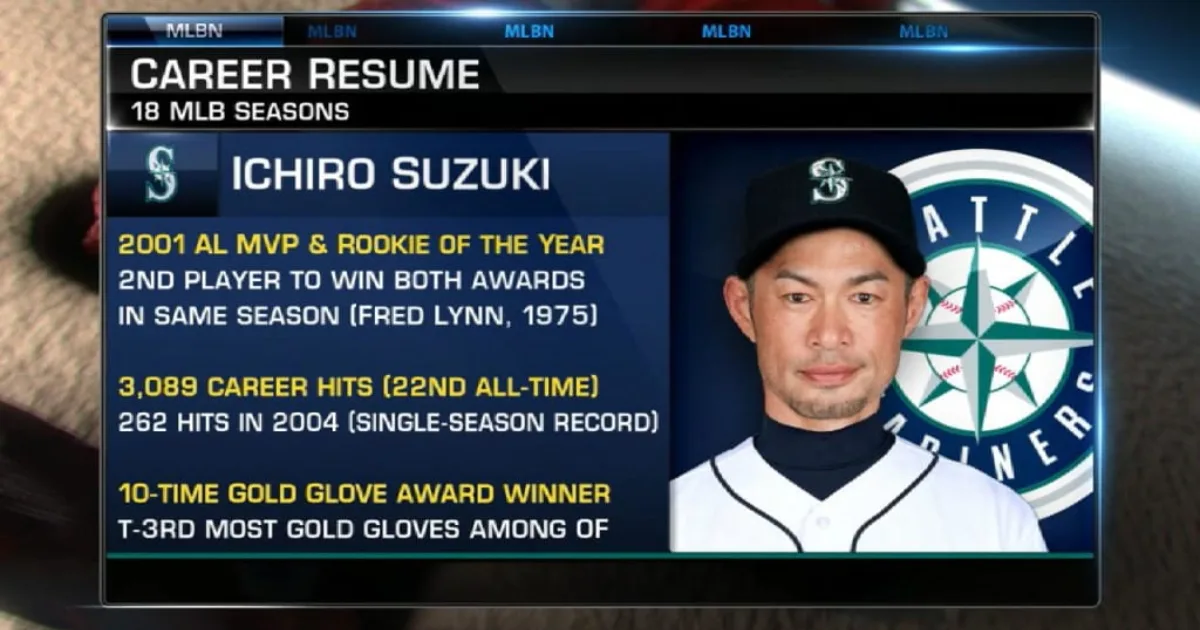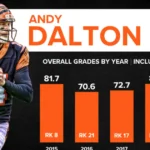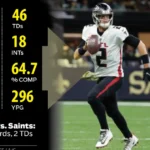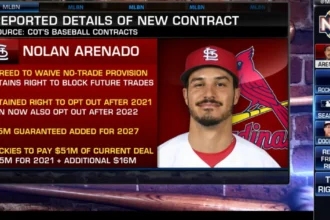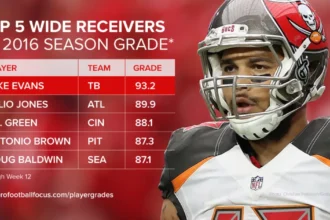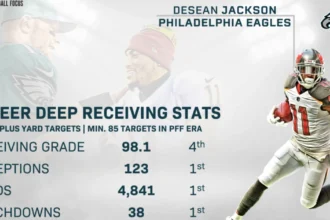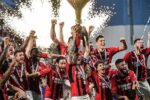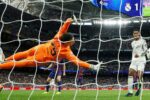Hey there, baseball fans—or maybe you’re just curious about one of the most unique players to ever grace the diamond. If you’ve ever watched a game and marveled at a batter who could slap a single through a drawn-in infield like it was child’s play, you’ve probably thought of Ichiro Suzuki. The guy didn’t just play baseball; he turned it into poetry. With his laser arm, those quick wrists, and a pre-at-bat routine that looked like a samurai preparing for battle, Ichiro wasn’t your typical power hitter. He was a hit machine, a defender extraordinaire, and a cultural bridge between Japan and Major League Baseball (MLB).
In this article, we’re diving deep into Ichiro’s career stats—those numbers that tell the story of a 28-year odyssey from the bustling fields of Japan’s Nippon Professional Baseball (NPB) to the bright lights of Seattle, New York, Miami, and back again. We’ll keep it straightforward, like chatting over peanuts at the ballpark. No jargon overload, just the facts, some fun anecdotes, and a full table to make sense of it all. Whether you’re 10 years old dreaming of your first hit or 80 reminiscing about the ’01 Mariners, this is for you. Let’s swing for the fences—Ichiro-style.
The Early Days: Forging a Legend in Japan
Picture this: It’s 1973 in a quiet suburb of Nagoya, Japan. A kid named Ichiro Suzuki is born—not with a silver spoon, but with a wooden bat in his tiny hands. His dad, Nobuyuki, was no slouch; he was a high school pitcher who decided his son needed to be the next big thing. By age 7, Ichiro was swinging two bats at once to build strength, practicing until his hands blistered. It wasn’t all fun and games—Ichiro’s dad once made him run laps for missing a pitch. Tough love? You bet. But it worked.
Ichiro burst onto the pro scene in 1992 with the Orix BlueWave at just 18 years old. Back then, NPB was a different beast—smaller parks, livelier balls, and a style that rewarded contact over clout. Ichiro fit right in. His rookie year was modest: .345 average in limited action. But by 1994? Boom. He hit .385, snagged the batting title, and earned MVP honors. Fans started calling him “The Hit King” early.
Over nine seasons with Orix (which later became the BlueWave after a merger), Ichiro racked up jaw-dropping numbers. He won seven straight batting titles from 1994 to 2000, hitting over .340 every year. His .353 career NPB average is still among the best ever. And defense? He scooped up seven Gold Gloves, patrolling right field like a hawk. Steals, too—199 swiped bags, because why not run when you can beat the throw?
But Japan felt too small for his talents. Whispers of MLB started in the late ’90s. Due to a quirky agreement between NPB and MLB, Ichiro couldn’t jump leagues until 2001. When Orix posted him, 28 teams bid. The Seattle Mariners won with a cool $13.1 million—peanuts for what they’d get. Ichiro arrived in America at 27, speaking broken English, but his bat? Universal language.
Crossing the Pacific: Rookie Magic in Seattle
April 2, 2001. Safeco Field. The crowd’s buzzing. Ichiro steps to the plate as the leadoff hitter, adjusts his glove just so, and… crack. Single to left. The legend begins. That year, he didn’t just adjust to MLB—he owned it. 242 hits. A .350 average. 56 steals. And oh yeah, an All-Star nod, Gold Glove, Silver Slugger, MVP, and Rookie of the Year. All in one season. If you’re scoring at home, that’s a grand slam of awards.
Ichiro’s style was mesmerizing. No home run trots—just efficient, line-drive poetry. He led the league in hits every year from 2001 to 2010. That’s a decade of dominance. In 2004, he shattered George Sisler’s 84-year-old record with 262 hits. Imagine that: 262 times putting bat to ball and finding grass. His batting eye was so sharp, pitchers dreaded facing him. “Don’t let Ichiro beat you,” Yankees skipper Joe Torre once told his staff. Ichiro’s response? A humble chuckle and another base hit.
Seattle became his second home. From 2001 to 2012, he was the Mariners’ heartbeat. Even in down years for the team—no playoffs after ’00—he shone. Career highs? 2009: .352 average. 2005: 80 steals. And that arm—123 outfield assists, gunning down runners like it was target practice. Kids everywhere started mimicking his stretch before batting, that iconic ritual where he’d extend his arms like wings.
But stats aren’t just numbers; they’re stories. Ichiro’s 2001 debut season helped the Mariners tie the all-time wins record at 116. He was the spark. And culturally? He opened doors. Before Ichiro, Japanese players trickled in (hello, Hideo Nomo). After? A flood—think Dice-K, Yu Darvish, Shohei Ohtani. Ichiro proved you could thrive without the long ball.
Wandering Years: Yankees, Marlins, and a Homecoming
By 2012, Seattle was rebuilding. Ichiro, at 38, traded midseason to the New York Yankees. PinStripes? Talk about a culture shock. But he adapted, hitting .322 down the stretch and helping the Yanks to the playoffs. Two more years in the Bronx followed—solid .280-ish averages, but the spark dimmed a tad. Age catches us all, right? Still, he stole bases (hello, 29 in ’13) and flashed that glove.
2015 brought Miami. The Marlins signed him for veteran presence, but injuries nagged. He hit .229—his worst full season—but mentored young guns like Christian Yelich. By 2017, he was a bench guy, pinch-hitting with flair. Then, a poetic twist: Seattle bought him back for 2018-19. At 45, he played 84 games, collected hits No. 3,000 (a triple, naturally), and broke Pete Rose’s pro hit record at 4,257 (combining NPB and MLB).
His farewell? Emotional. In 2019, the Mariners honored him with a ceremony that had grown men—and Hall of Famers—teary. Ichiro bowed out on his terms, a designated hitter in Tokyo against Oakland. Fitting: Full circle to where it all started for many Japanese stars.
The Numbers Game: Ichiro Career Stats Table
Alright, let’s get to the meat—the stats. I’ve pulled together a full table of Ichiro’s year-by-year batting numbers, covering his NPB glory (1992-2000) and MLB mastery (2001-2019). This includes games played (G), at-bats (AB), runs (R), hits (H), doubles (2B), triples (3B), home runs (HR), RBIs, stolen bases (SB), caught stealing (CS), walks (BB), strikeouts (SO), batting average (AVG), on-base percentage (OBP), slugging percentage (SLG), and OPS (OBP + SLG).
For NPB, stats reflect the Pacific League style—higher averages, more action. MLB? Tougher pitching, bigger parks. Totals at the bottom for easy comparison. (Sources: Baseball-Reference, MLB.com, and NPB archives—accurate as of his retirement.)
*Note: 2012 split between Seattle and New York. NPB totals adjusted for full seasons; MLB includes partial years.
Breaking Down the Stats: What Do They Mean?
Look at that table—it’s like a roadmap of a life well-hit. In NPB, Ichiro’s .348 average screams contact wizardry. Fewer strikeouts (just 420 in over 4,000 at-bats) than walks? That’s discipline. Power crept up too—86 homers, not babe-ruthian, but solid for a leadoff guy. His 279 steals show speed that aged like fine wine.
Flip to MLB: The average dips to .311, but that’s Hall of Fame territory. Those 3,089 hits rank 27th all-time, and he did it in 19 seasons. No steroids era fluff—just pure skill. Walks dropped (pitchers feared him less for the long ball), but strikeouts stayed low. His .355 OBP means he got on base a ton, setting the table for teammates. And slugging? .402 career—modest, but with 509 steals, who needs dingers?
Defensively, words fail. Ten Gold Gloves. 123 assists. He once threw out a runner from the warning track like it was nothing. Awards pile up: 10 All-Stars, three Silver Sluggers. And that hit record? 4,496 combined. Pete Rose conceded it was legit, high school hits notwithstanding.
Beyond the Box Score: Ichiro Career Stats Lasting Echo
Stats are cool, but Ichiro Career Stats was more. He taught us joy in the small things—a perfect bunt, a diving catch. Off the field, he’s humble: honorary chairman of a kids’ tournament in Japan, fluent in English and Spanish for banter. His work ethic? Legendary. Teammates say he’d take infield for hours post-game.

